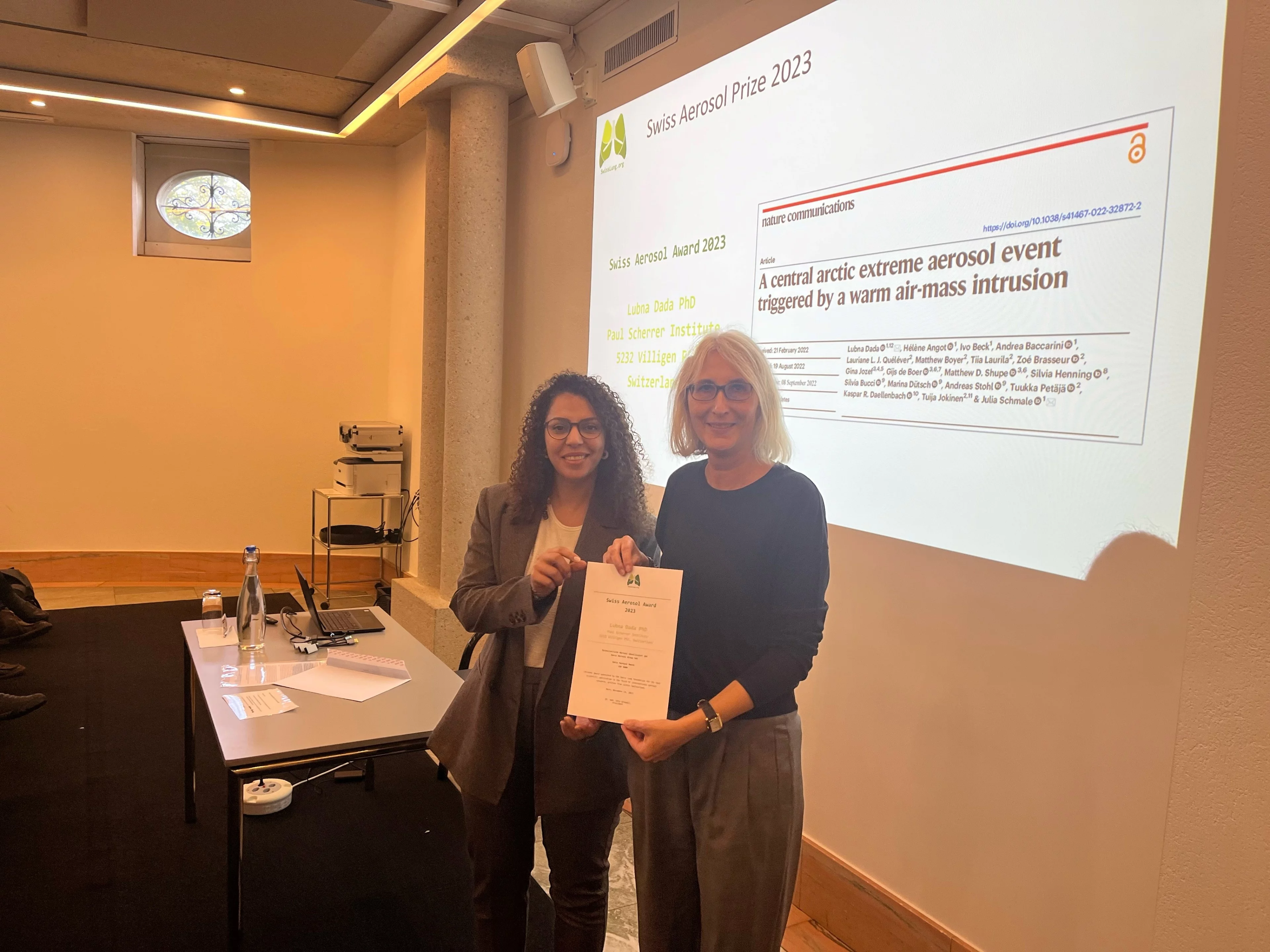Dr. Lubna Dada, scientist at the Laboratory of Atmospheric Chemistry at Paul Scherrer Institute has received the Swiss Aerosol Award 2023 from the Swiss Lung Foundation in Bern for her excellent work on warm airmass intrusions from mid-latitudes into the Arctic.
The work led by Lubna Dada and coauthors showcases an extreme warm airmass intrusion via measurements in the central Arctic Ocean, on board of the icebreaker research vessel Polarstern, during the MOSAiC Expedition. The warm airmass intrusion carried aerosol pollution into the central Arctic from mid-latitudes. The transported aerosol particles could act as cloud seeds, forming a blanket-like structure with warming properties and accelerating the Arctic amplification process and the Arctic Sea ice melt, all very serious implications for the Arctic climate. The results also show how high concentrations of anthropogenic air pollution reach sensitive ecosystems where no noticeable local pollutant emissions are observed. The work highlights the importance of transboundary global efforts in reducing air pollutants especially in the context of global warming.
The work was performed at the Extreme Environments Research Laboratory, EPF Sion and addressed an extreme airmass intrusion in April 2020 arriving from mid-latitudes. The event altered the Arctic environment, transforming it from a remote, unpolluted setting into a region resembling an urban area in central Europe. Furthermore, the intrusion led to a substantial increase in cloud condensation nuclei, which can directly influence various aspects of Arctic clouds, including their radiation properties, precipitation patterns, and longevity affecting the Arctic climate.
Given the multitude of ongoing Arctic climate research initiatives, particularly in response to the pressing issue of global warming, the findings of this work are relevant to many researchers and policymakers. This research suggests that taking prompt actions to significantly reduce emissions in the source regions is necessary to reduce the impact of pollution transport via these events on the Arctic climate.
Original publication: Dada, L., Angot, H., Beck, I., Baccarini, A., Quéléver, L. L. J., Boyer, M., Laurila, T., Brasseur, Z., Jozef, G., de Boer, G., Shupe, M. D., Henning, S., Bucci, S., Dütsch, M., Stohl, A., Petäjä, T., Daellenbach, K. R., Jokinen, T., and Schmale, J.: A central arctic extreme aerosol event triggered by a warm air-mass intrusion, Nature Comm., 13, 5290, 10.1038/s41467-022-32872-2 , 2022.
Contact: Dr. Lubna Dada, Scientist, Atmosphere-Biosphere Interactions Group, Laboratory of Atmospheric Chemistry, Paul Scherrer Institute, Villigen, lubna.dada@psi.ch, 0563105317
Related material: A warm intrusion in the Arctic causes extreme pollution levels


